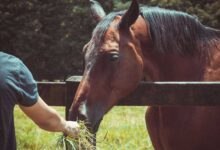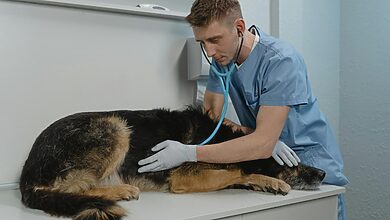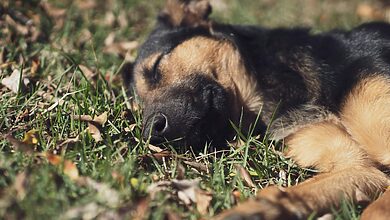Nourishing Your Hopper: The Ultimate Rabbit Nutrition Guide

Your rabbit isn’t just a pet; it’s a cherished member of your family. Ensuring their health and happiness starts with understanding the fundamentals of nourishing your hopper. This comprehensive guide will delve deep into the world of feeding your furry friend, covering everything from essential nutrients to tailored diets for various life stages and situations. Get ready to become your rabbit’s nutrition expert.
Rabbits are gentle and delightful companions, but they have unique nutritional needs. By understanding the basics of rabbit nutrition, you can ensure a long, healthy, and happy life for your furry friend. This guide will take you on a journey through their dietary requirements, from the fundamental components of their diet to specialized feeding plans for different life stages and health conditions.
Nourishing Your Hopper
Understanding Rabbit Nutrition
Rabbits are herbivores, and their digestive systems are finely tuned for a diet rich in fiber and low in fats and sugars. The cornerstone of their diet is hay, which provides the essential fiber necessary for proper digestion. In addition to hay, your rabbit’s diet should include fresh vegetables, pellets, and occasional treats. Understanding these basics is vital for crafting a balanced nutrition plan for your furry friend.
While understanding the nutritional needs of your rabbit, it’s essential to recognize that they are obligate herbivores. Their diet should consist primarily of fiber-rich hay, such as timothy hay, meadow hay, or orchard grass hay. Fiber keeps their complex digestive system healthy and active.
Creating the Perfect Rabbit Diet
Balancing your rabbit’s diet involves combining different elements to meet their nutritional requirements. Hay should make up the majority of their diet, with pellets serving as a supplementary source of essential nutrients. Fresh vegetables and occasional treats add variety and enrichment to their meals. Balancing these components is key to ensuring your rabbit receives a well-rounded diet.
The bulk of your rabbit’s diet should consist of high-quality grass hay, as it provides the necessary fiber for proper digestion. Pellets should be fed in moderation and chosen carefully to avoid excess fats or sugars. Fresh vegetables and occasional treats should be introduced gradually and in small quantities to prevent digestive upset.
Mastering Rabbit Feeding Habits
Understanding your rabbit’s natural feeding behavior is crucial for creating a suitable feeding routine. Rabbits are crepuscular, meaning they are most active during dawn and dusk. Providing fresh hay and vegetables during these times aligns with their natural feeding behavior and promotes better digestion.
To cater to your rabbit’s natural instincts, offer fresh hay and vegetables during their peak activity times—dawn and dusk. This aligns with their natural grazing habits and encourages healthy eating.
Tailored Nutrition for Specific Scenarios
Addressing Health Concerns
Rabbits, like any pet, may face health challenges. Weight management is essential, as higherweight rabbits are more prone to various health issues. Ensure you’re providing the right portions and types of food to maintain your rabbit’s healthy weight. Additionally, dental health is critical for rabbits, as their teeth continuously grow. Chew toys and a diet rich in hay help keep their teeth in check.
Maintaining a healthy weight is crucial for your rabbit’s overall well-being. Obesity can lead to various health issues, so it’s essential to provide the right portion sizes and monitor their weight regularly. Additionally, dental health is critical for rabbits, and offering chew toys can help prevent dental problems.
Customizing Diets for Different Life Stages
Rabbits go through various life stages, each with its unique nutritional needs. From baby bunnies to senior rabbits, this section provides valuable guidance on tailoring their diet for optimal health and well-being.
- Feeding Baby Rabbits: Baby rabbits, or kits, have unique dietary needs to support their rapid growth and development. They rely on their mother’s milk initially and gradually transition to solid food, starting with hay and pellets.
- Feeding Pregnant and Nursing Rabbits: Pregnant and nursing does need specialized diets to support both their health and the growth of their kits. Ensure they receive higher energy and nutrient content during these critical times.
- Caring for Older Rabbits: As rabbits age, their dietary needs change.Olders rabbits may require softer food options and supplements to address age-related health concerns.
Adapting to Different Climates
Rabbits can experience a range of environmental conditions, each necessitating specific nutritional considerations. Whether in a hot, humid climate or a chilly, dry one, learn how to adapt your rabbit’s diet to keep them comfortable and thriving.
Extreme temperatures can affect a rabbit’s hydration and energy requirements. Adjusting their diet ensures they remain healthy in diverse climates.
Nutrition on a Budget
Providing quality nutrition for your rabbit doesn’t have to break the bank. Explore cost-effective strategies that allow you to provide balanced and nutritious meals without straining your finances.
You can maximize your budget by making the most of hay and selecting budget-friendly vegetables. By making smart choices, you can ensure your rabbit receives nutritious meals without overspending.
Handling Specific Scenarios
Feeding Baby Rabbits
Baby rabbits, or kits, have unique dietary needs to support their rapid growth and development. Learn how to provide the right nutrition, including mother’s milk and transition to solid foods, for these young fluffballs.
Feeding baby rabbits is a delicate task. They initially rely on their mother’s milk, which provides essential nutrients for growth. As they grow, you can introduce solid food, starting with hay and pellets.
Feeding Pregnant and Nursing Rabbits
Pregnant and nursing does need specialized diets to support both their own health and the growth of their kits. Discover how to ensure these rabbit moms get the nutrition they need during these critical times.
Pregnant and nursing does require diets with higher energy and nutrient content to support their growing litters. You can achieve this by increasing their hay and pellet intake.
Caring for Older Rabbits
As rabbits age, their dietary needs change. Explore how to provide the best nutrition for your Older rabbit to keep them comfortable, healthy, and active in their golden years.
Older rabbits may have dental issues or a decreased appetite. You can adapt their diet by offering soft, easily digestible foods and potentially including supplements to address age-related health concerns.
Feeding Rabbits with Dental or GI Problems
Dental issues and gastrointestinal problems can affect rabbits. Learn how to adapt their diet to accommodate these conditions and promote their well-being.
For rabbits with dental issues, providing soft foods and offering regular veterinary care is crucial. Gastrointestinal problems may require dietary adjustments, such as limited greens and carefully chosen hay types.
Transitioning to a New Diet
Sometimes, a dietary change is necessary. Discover how to transition your rabbit to a new diet gradually, minimizing digestive issues and ensuring a smooth adjustment.
Transitioning to a new diet should be done gradually over several days. Start by introducing small amounts of the new food while reducing the old one. This helps your rabbit adjust without digestive upset.
Homemade Rabbit Food
For those who prefer a hands-on approach, explore the world of homemade rabbit food. Learn how to create nutritious recipes using fresh ingredients, providing a unique and tailored diet for your furry friend.
Homemade rabbit food allows you to have more control over your rabbit’s diet. You can customize it to meet their specific nutritional needs and preferences while ensuring the freshest ingredients.
Storing Rabbit Food Properly
Proper storage of rabbit food is essential to maintain its quality and safety. Discover best practices for keeping hay, pellets, and vegetables fresh and free from pests.
Storing food in a cool, dry place and using airtight containers helps preserve its freshness and nutritional value. Keep an eye out for any signs of spoilage or pest infestations to ensure your rabbit always receives high-quality food.
Nourishing Your Hopper
Your rabbit’s nutrition is a fundamental aspect of their overall health and happiness. By mastering the principles outlined in this ultimate guide, you empower yourself to provide your furry companion with the best possible care. From creating tailored diets to addressing health concerns and budget constraints, you’re now equipped to nourish your beloved rabbit for a lifetime of vitality and well-being. Remember, your rabbit’s well-being is a testament to the care and dedication you invest in their nutrition and overall happiness.








